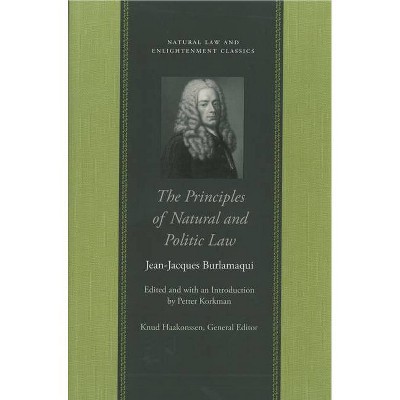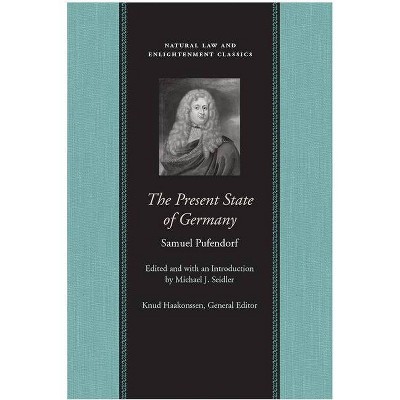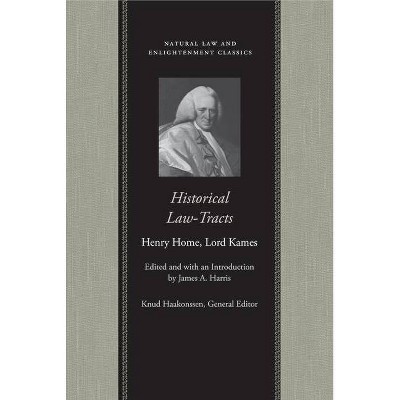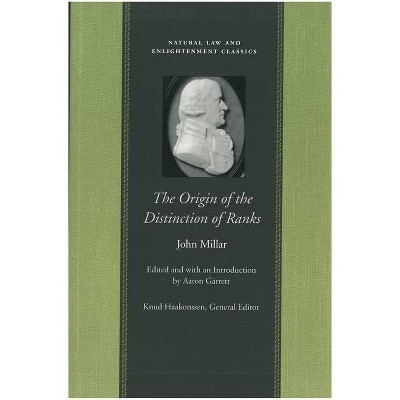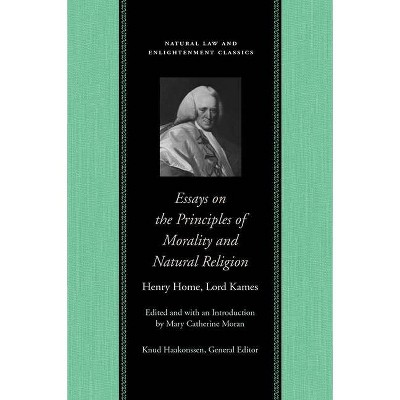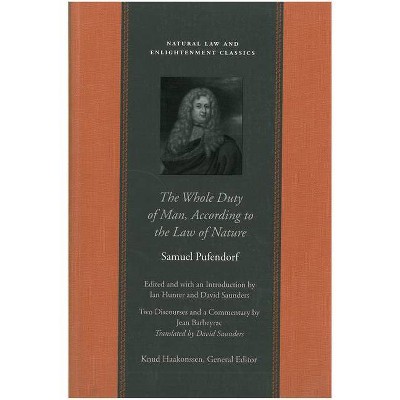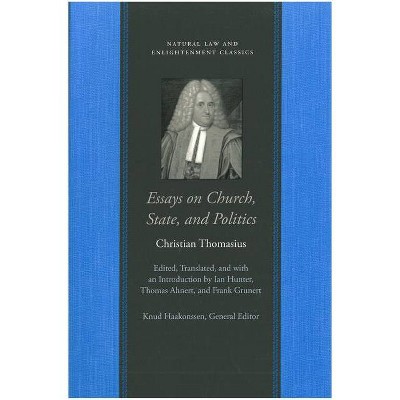Natural Rights on the Threshold of the Scottish Enlightenment - (Natural Law and Enlightenment Classics (Paperback)) by Gershom Carmichael
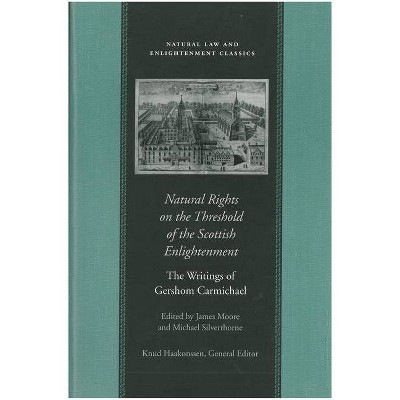
Similar Products
Products of same category from the store
AllProduct info
<p/><br></br><p><b> Book Synopsis </b></p></br></br><p><strong>Gershom Carmichael</strong> (1672-1729) was the first professor of moral philosophy at the University of Glasgow, preceding Hutcheson, Smith, and Reid. His philosophy focused on the natural rights of individuals--the natural right to defend oneself, to own the property on which one has labored, and to services contracted for with others. Although he appealed to the authority of Grotius and Locke, the grounds on which he defended natural rights were distinctively his own. <strong><em>Natural Rights</em></strong> is the first modern edition and translation of his published works.</p> <p><strong>James Moore</strong> is Emeritus Professor of Political Science at Concordia University in Montreal.</p> <p><strong>Michael Silverthorne</strong> is Honorary University Fellow in the School of Classics at the University of Exeter.</p><p/><br></br><p><b> Review Quotes </b></p></br></br><br><i>". . . this impressive work will be of interest not only to Enlightenment scholars, but also to scholars working in the areas of moral philosophy, the history of political thought, and the history of education and of the Scottish universities."</i> <p/><b><i>Eighteenth-Century Scotland</b></i> <p/><br> Gershom Carmichael (1672-1729) taught philosophy at the University of Glasgow from 1694 until 1729, first as a regent (tutor), and latterly, from 1727, as the first Professor of Moral Philosophy. He was, without doubt, the ablest Scottish philosopher of his generation; and he established the reputation of his chair, whose subsequent holders in the eighteenth century included Francis Hutcheson, Adam Smith and Thomas Reid. This volume is the first modern edition and translation of his published works, all of which were written to aid his teaching. It is the fruit of an unusually congenial scholarly partnership, which has already contributed a series of articles establishing Carmichael's importance in the histories of Natural Jurisprudence and of the Scottish Enlightenment. A short foreword by James Moore outlines Carmichael's biography and approach to teaching, and indicates the context in which his thinking should be understood. The translations themselves are the work of Michael Silverthorne, who has previously published translations of both Hobbes and Pufendorf. Here as there his translations are distinguished for the clarity with which he renders complex arguments without recourse to excessive modernization of idiom. In Silverthorne's hands, Carmichael is a pleasure to read. The accessibility of the texts is further enhanced by editorial annotation that is equally informative and unintrusive. As the first in what promises to be an important and very valuable series by the Liberty Press devoted to Natural Law and Enlightenment Classics, under the general editorship of Knud Haakonssen, this volume sets a high standard. <p/><b>John Robertson<br> St. Hugh's College, Oxford<br><i>Eighteenth-Century Thought</i><br> 2003 </b><br><br>
Price History
Price Archive shows prices from various stores, lets you see history and find the cheapest. There is no actual sale on the website. For all support, inquiry and suggestion messages communication@pricearchive.us

